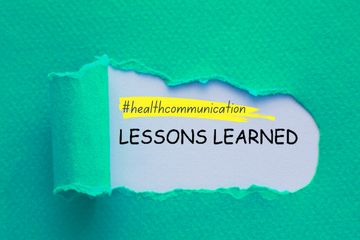You’re reading Lessons Learned, which distills practical takeaways from standout campaigns and peer-reviewed research in health and science communication. Want more Lessons Learned? Subscribe to our Call to Action newsletter.
As misinformation becomes a bigger issue worldwide, communication experts are working on ways to help people spot and address it in everyday situations. Psychological inoculation is a popular intervention approach that helps people identify manipulation techniques. Generally, this involves exposing them to misleading information in an attempt to boost their ability to find it in the future. The method is currently being used by many technology companies to combat misinformation on their platforms. To see whether inoculation really helps, researchers from Cornell University and MIT conducted an experiment using a set of news headlines that were based on both true and false content relating to current events. The authors recently described their findings in a preprint, which has not yet been peer reviewed, on PsyArXiv (DOI: 10.31234/osf.io/5a9xq).
What they learned: Through five different experiments, the researchers tested the effectiveness of a commonly used form of psychological inoculation that is designed to help people identify emotional language, a manipulation technique commonly seen in misinformation. They found that the inoculation helped people identify emotional manipulation, but it did not help them distinguish between true and false content. The researchers theorize that this may be because people tend to overlook the accuracy of content they consume on social media. Those who were given accuracy prompt interventions prior to the inoculation video were more likely to identify which headlines were true and which ones were false.
Why it matters: The findings demonstrate that psychological interventions like inoculation can increase people’s ability to detect high emotion headlines from low emotion headlines. But they also suggest inoculation alone may not enable people to distinguish what’s true from what’s false on social media.
➡️ Idea worth stealing: Practitioners, technologists, and policymakers could add accuracy prompts to their inoculation efforts to fight misinformation in real-world settings.
What to watch: Exploring how various misinformation interventions can be used together to increase their mutual effectiveness.




